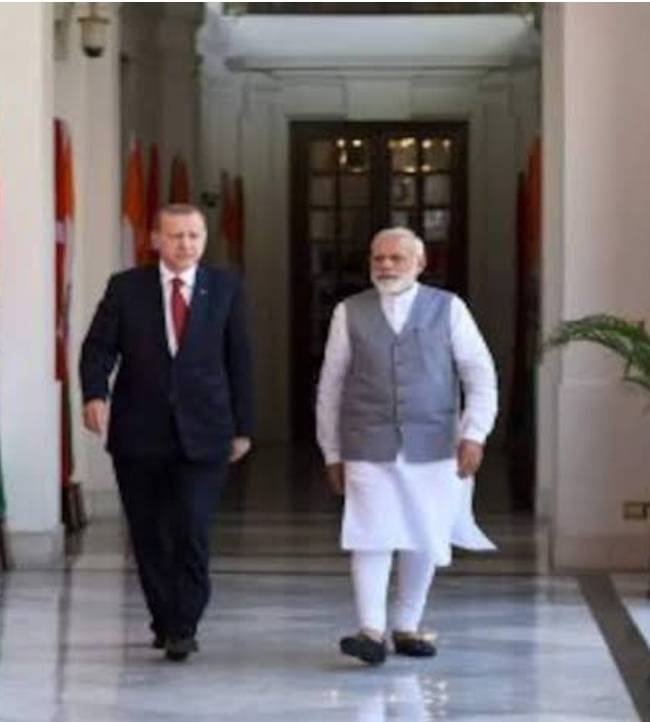India - Middle East Economic Corridor faces yet another blow
Shares

The unveiling of an economic corridor jointly proposed by India, Saudi Arabia, and the European Union has sparked considerable controversy, with Turkish President Recep Tayyip Erdogan expressing strong reservations about the initiative. Erdogan's critical remarks were delivered in the presence of reporters during the G20 conference, where the India-Middle East corridor was officially announced.
He firmly asserted, "We assert that there can be no corridor without Turkey," underscoring Turkey's significance as a vital hub for both production and trade.
Erdogan emphasized that the most practical and efficient route for east-west traffic necessitates passage through Turkey. The overarching objective of this ambitious project is to establish a comprehensive link between India, the UAE, Saudi Arabia, and Israel, ultimately reaching Europe. The partners involved in this venture aspire to streamline shipping routes, potentially resulting in substantial cost and time savings.
In addition, Erdogan underscored the notion that this economic corridor initiative is just one among several endeavors aimed at expanding the spheres of influence of participating nations. Many observers in the Western media have drawn parallels between this project and China's Belt and Road Initiative.
However, Erdogan was quick to emphasize his support for the Iraq Development Road Project, which seeks to establish highway and railway connections between Gulf countries, Turkey, and Europe via the UAE, Qatar, and Iraq. This initiative represents a compelling alternative vision for regional economic integration.
In the midst of these geopolitical discussions, it is clear that the economic corridor proposal has ignited a complex web of diplomatic maneuvering and competing interests, leaving the world to ponder the implications of these strategic initiatives on the global stage.
Erdogan's steadfast insistence on Turkey's central role in any corridor development underscores the importance of regional actors in shaping the future of these ambitious projects. As these initiatives continue to unfold, they are sure to reshape the geopolitical landscape in ways that remain to be fully understood.
